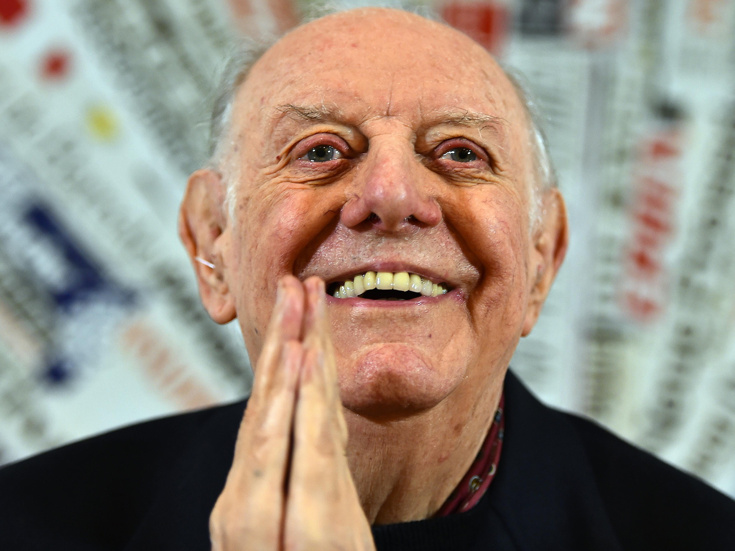Dario Fo, Nobel Prize-Winning & Controversial Playwright & Satirist, Dies at 90
Dario Fo, the Nobel Prize-winning Italian playwright whose frequent collaborations with his wife Franca Rame drew universal dissension, died on October 13. His death, which followed two weeks of hospitalization in Milan for back pain, was confirmed to the New York Times by his Italian publisher, Chiarelettere. He was 90 years old.
In 1984, Fo’s play Accidental Death of an Anarchist played Broadway’s Belasco Theatre. At the time, he and Rame needed to receive a waiver from the State Department in order to attend the opening in New York, due to their ties to the Italian Communist Party.
Fo was born on March 24, 1926 in the Italian town on Sangiano to railway stationmaster Felice and Pina Rota, who later wrote the acclaimed autobiography Il Paese delle Rane. He attended the Brera Fine Arts Academy in the early 1940s before going into hiding to avoid serving during World War II. His parents were both active members of the resistance and assisted in the escape of Italian Jews and British prisoners of war.
In 1951, Fo met Rame while acting in a theater company in Milan. They married in 1954. Over the years, they created myriad shows inspired by the Italian tradition of commedia dell’arte that played to both customary theaters and protests. Rame died in 2013. His additional works include Fedayin and We Won’t Pay! We Won’t Pay!, which explored the Palestinian-Israeli conflict and protesting inflation. For each of these, Fo encouraged artists worldwide to relate their productions to issues and experiences that affect their respective local community.
Similarly, Fo’s one-man show Mistero Buffo, which comically highlighted politics and religion, experienced countless incarnations and revisions from 1969 through the ‘90s. When he received the 1997 Nobel Prize in Literature, he received extreme amounts of criticism from the police and the Vatican. “Yours is an act of courage that border on provocation,” he told the Swedish Academy at theh time.
Fo is survived by his son, Jacopo. A commemorative service will be held at the Piccolo Teatro Strehler, where he staged productions (which were routinely shut down by authorities) in the 1950s.
 Dario Fo
Dario Fo(Photo: Gabriel Bouys/AFT/Getty Images)